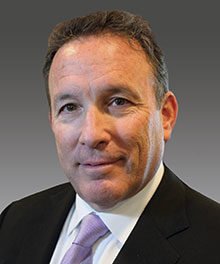Reinventing the Workplace

It’s going to take years to assess the full effects of the COVID-19 pandemic but one thing that’s very clear is that the modern workplace will never be the same. Doing business during various stages of lockdown for a year gave business leaders an unexpected immersion in remote work – and based on the latest Marcum-Hofstra CEO survey, it looks like that experiment shifted their perceptions of the virtual workplace in major ways. More than 80% of middle-market CEOs said they were likely to allow for a partially remote workforce after the COVID-19 pandemic. I’m among them. We’ve embraced flexible and remote work at Marcum for many years, but after seeing how productive our team was when working almost 100% virtually during the pandemic, I’m an even bigger champion than I once was – although, like many things, in moderation and when practical.
The implications of the new acceptance of remote work are staggering. For many decades, one way that managers judged employees’ performance has been on very visible factors like whether they showed up for work on time, stayed late when deadlines loomed or were willing to jump on a plane to meet a client on short notice. That system – fair or not – rewarded workers who had the freedom from other demands to do these things.
With more workers doing their jobs remotely and in ways that are not as visible to managers, companies have had to shift to other criteria for evaluating their performance, like how much work they are getting done or their success in keeping customers happy. This could be game changing for high-performing workers who’ve traditionally had to shoulder a heavy load of household responsibilities that made long hours of “face time” hard – such as many working mothers. It could also mean that workers with disabilities will have a more level playing field. Without the pressures of commuting, they will have many more opportunities to find work.
At the same time, it will raise the bar for managers. Those who relied on “management by walking around” will need to find other ways to motivate their teams and collaborate. Those of us who hire managers will need to look for leaders who are fluent in the best practices of managing a team remotely – best practices that are often changing in real time. Given the general uptick in business optimism many leaders expressed in the survey, I won’t be surprised to see many companies putting in the time and effort to get this right – so they can continue to benefit from the efficiency of virtual work as the economy continues to open up.
As the survey pointed out, the pandemic also brought about major changes in how companies look at real estate. Some companies are now looking at properties they once may have viewed as assets as liabilities instead. One respondent, for instance, mentioned a goal to reduce the company’s “real estate exposure.” That phrasing says it all. I’m still trying to figure out what Marcum’s future real estate footprint looks like.
Although this new way of thinking will bring challenges to the commercial real estate sector, it will also bring opportunity. At Marcum, we’ve noticed many clients exploring real estate strategies they never would have considered before the pandemic, such as reducing the size of their flagship headquarters in New York City and opening satellite offices in the suburbs, nearer to where their teams live. Developers and brokers who stay on top of this trend are likely to find themselves in a strong position.
The survey – which polled the leaders of 251 companies with revenue from $5 million to more than $1 billion – also touched on companies’ policies on COVID vaccines. Among respondents, 45% said they were likely to require employees to be vaccinated if this was legal in their state, and 36% said they were likely to offer employees incentives to be vaccinated. Only 17% said they were not likely to establish a policy on employee vaccinations, and 3% said they were not sure. Finding the right position on this is not easy for any company, and it will be interesting to see how sentiment on this changes as the year progresses.
On another note, Tuesday was the start of Ramadan, one of the holiest months for Muslims. During this month, Muslims fast from dawn to dusk. To those of you who observe, I wish you a very happy Ramadan.
Stay safe, stay healthy, and remember, we’re all in this together!

